Enhancing your physical and mental well-being is strongly influenced by your daily food choices. While many individuals focus on what to avoid for their health or weight management, a more constructive approach is to emphasize the inclusion of beneficial foods in their diet. In this regard, the key aspect shared by the following selection of healthy foods is their origin from plant-based sources.
Plants offer abundant reserves of vitamins, minerals, phytonutrients, and fiber, making them valuable additions to one's daily nutritional intake. While the notion of consuming nine different plants daily might seem daunting, half of these foods can be conveniently combined in a generous salad or blended into a nourishing smoothie. Keep reading to explore the list of essential healthy foods that deserve a place in your everyday meals.
1) Kale
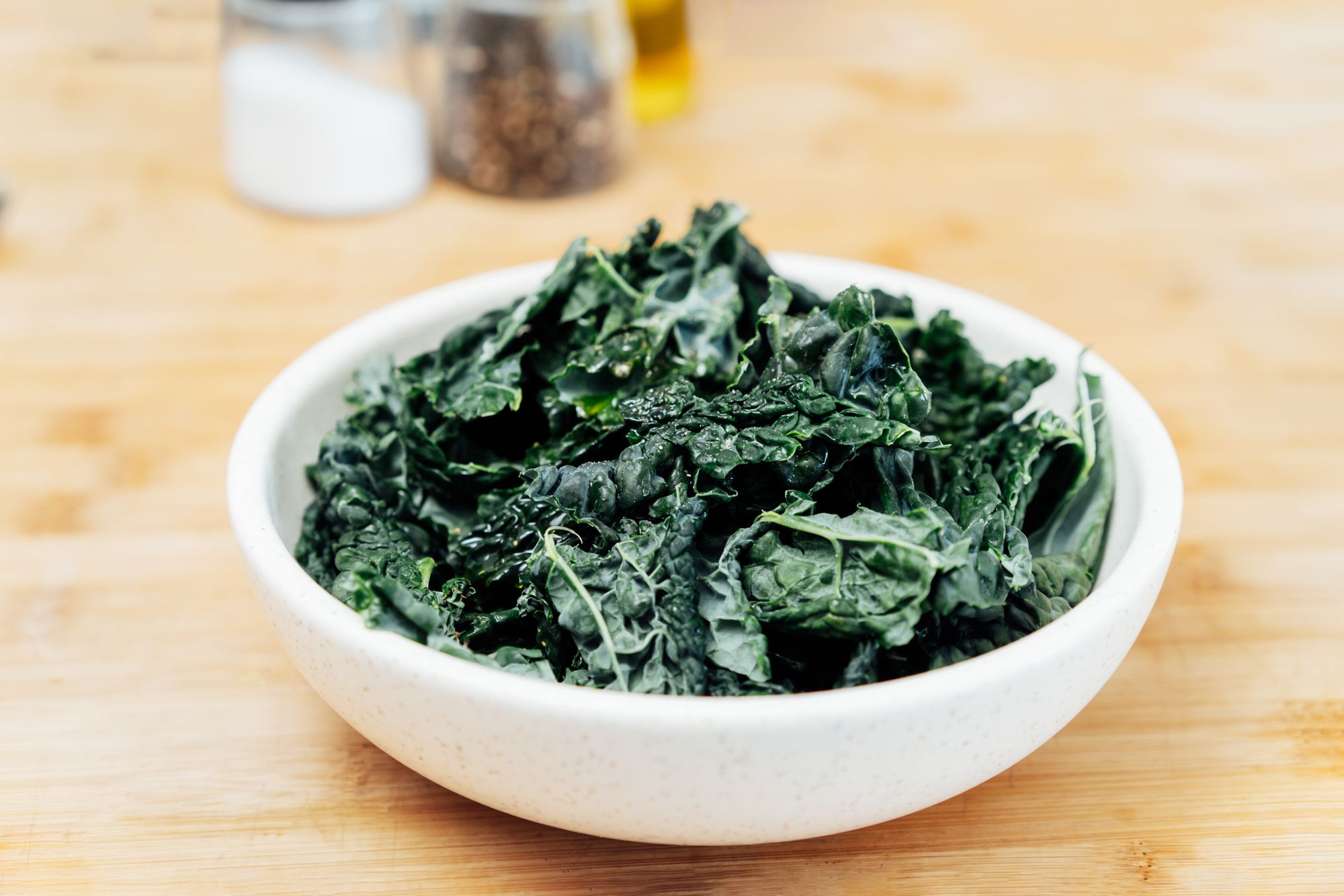
PER CUP: 42.5 calories, 1.4 g fat (0 g saturated fat), 18.9 mg sodium, 6.3 g carbs (4.7 g fiber, 1.4 g sugar), 3.5 g protein
The enduring popularity of kale can be attributed to its exceptional nutritional value. This leafy green powerhouse is particularly renowned for its high calcium content, with a single cup containing 177 milligrams—an essential nutrient for promoting bone health. However, calcium alone is not sufficient for maintaining strong bones; vitamin K is also crucial in this regard. Fortunately, kale comes to the rescue once again, supplying an impressive 493 micrograms of vitamin K per cup. For a delectable treat, chop up kale and gently massage it with a blend of olive oil and lemon, creating a delightful salad. Alternatively, sauté the kale with generous amounts of garlic for a mouthwatering side dish. Rest assured, your bones will express their gratitude for such nourishing choices.
2) Blueberries
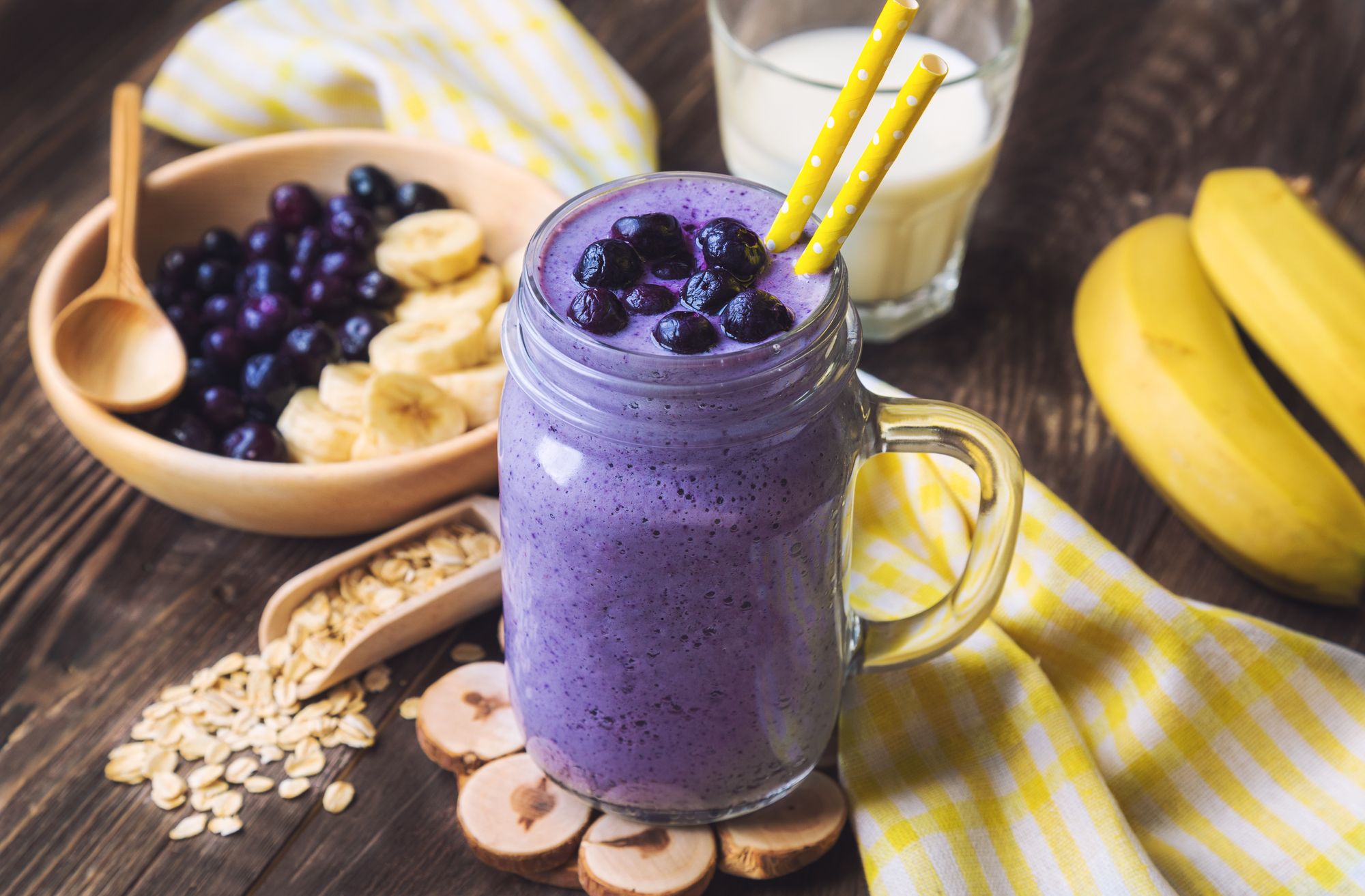
PER CUP: 57 calories, 0.3 g fat (0 g saturated fat), 1 mg sodium, 14.5 g carbs (2.4 g fiber, 9.9 g sugar), 0.7 g protein
Over the years, blueberries have gained significant recognition, and rightfully so. This delectable fruit is brimming with vital plant-based compounds such as anthocyanins, polyphenols, and antioxidants. A comprehensive review article published in the International Journal of Molecular Sciences in 2018 highlighted the numerous health benefits associated with blueberries. The research indicated that blueberries possess vision-enhancing properties, exhibit anticancer and antidiabetic effects, aid in weight management, serve as a preventive measure against neurodegenerative diseases, macular degeneration, and osteoporosis. Furthermore, they have the potential to reduce hyperlipidemia, hypertension, and the risk of heart disease. Undoubtedly, blueberries pack a powerful punch when it comes to their health-promoting capabilities.
3) Walnuts

PER CUP: 183 calories, 18.3 g fat (0 g saturated fat), 0.6 mg sodium, 3.8 g carbs (1.9 g fiber, 0.7 g sugar), 4.3 g protein
Could it be a mere coincidence that walnuts bear a striking resemblance to miniature brains? Curiously, when it comes to nourishing your brain, walnuts are indeed the perfect food to consider. Despite their high-fat content, walnuts boast a favorable type of fat called α‐linolenic acid (ALA)—an omega-3 fatty acid renowned for its beneficial properties. Omega-3 fatty acids are known for their anti-inflammatory effects, which likely contribute to walnuts' positive impact on cognitive function. Moreover, walnuts, along with almonds and hazelnuts, have demonstrated an astounding ability to stimulate the production of a remarkable protein called brain-derived neurotrophic factor. This protein plays a vital role in the generation of new brain cells, further solidifying walnuts' reputation as a brain-boosting food.
4) Chia Seeds
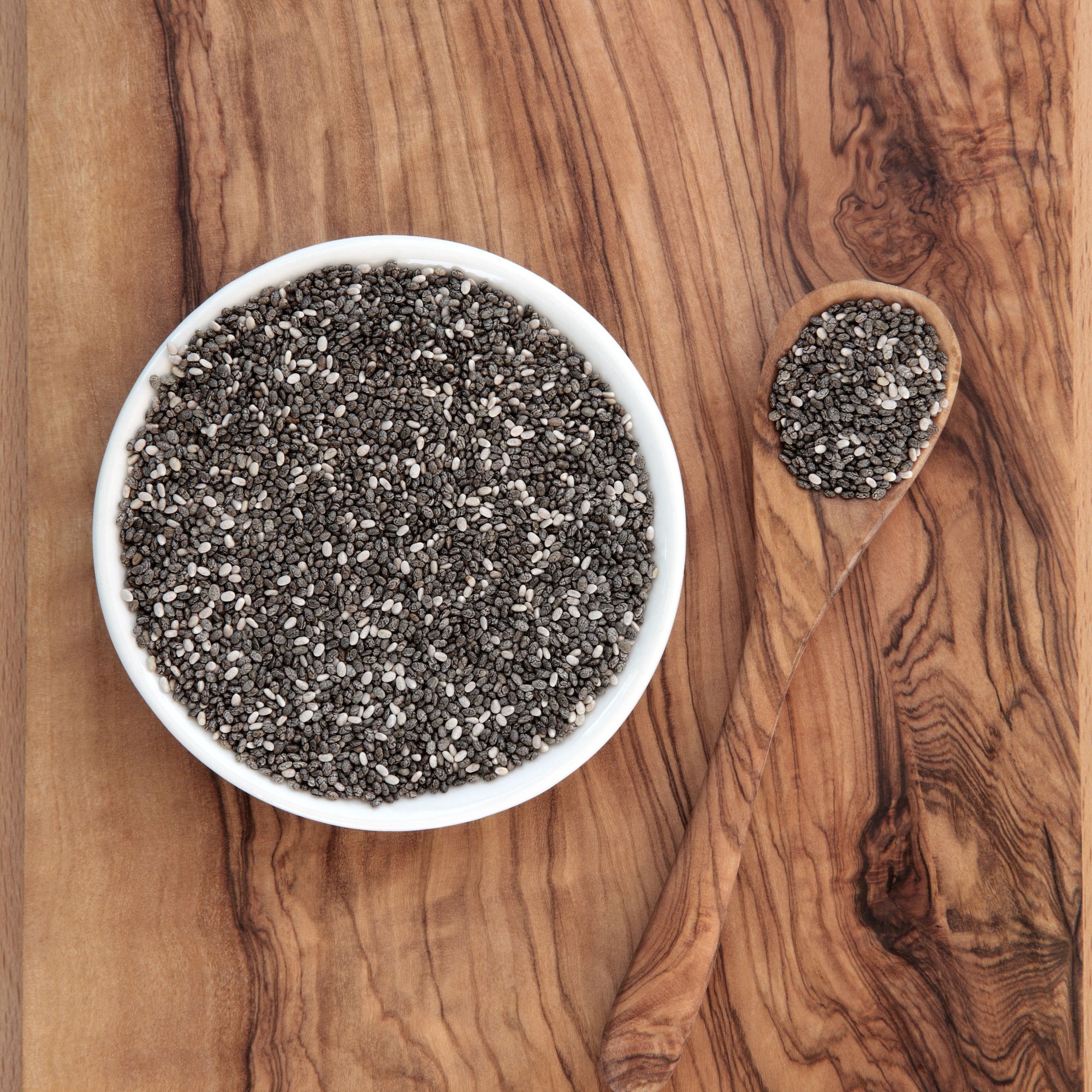
PER OUNCE: 183 calories, 8.7 g fat (0 g saturated fat), 4.5 mg sodium, 11.9 g carbs (9.6 g fiber, 0 g sugar), 4.7 g protein
The United States is facing a widespread issue of insufficient fiber consumption. According to the USDA's Dietary Guidelines for Americans, it is recommended that adult women under 50 consume 25 to 28 grams of fiber daily, while men under 50 should aim for 31 to 34 grams per day. However, it appears that Americans are only consuming about half of these recommended amounts. Fiber plays a crucial role in maintaining gut health, stabilizing blood sugar levels, and reducing cholesterol levels.
Fortunately, incorporating chia seeds into your diet can help bridge the fiber gap. A single serving of chia seeds covers nearly one-third of the daily fiber requirements. Additionally, chia seeds are abundant in antioxidants, which offer protective effects against chronic diseases. These versatile seeds can be easily added to various dishes, such as oatmeal, smoothies, yogurt, or even transformed into a delightful pudding. By including chia seeds in your meals, you can significantly boost your fiber intake while reaping the benefits of their antioxidant properties.
5) Spinach
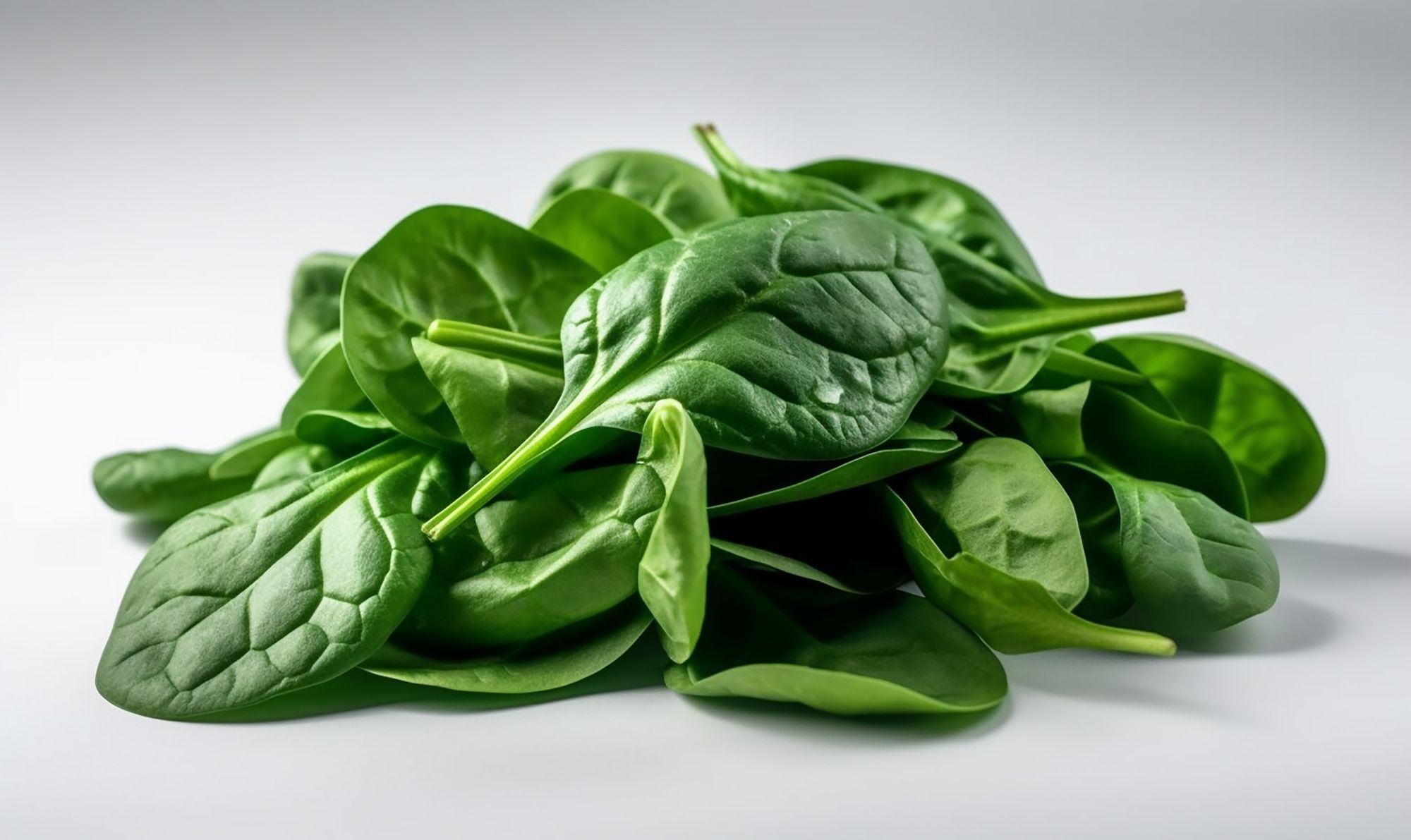
PER CUP: 41.4 calories, 0.5 g fat (0 g saturated fat), 551 mg sodium, 6.8 g carbs (4.3 g fiber, 0.8 g sugar), 5.6 g protein
Much like kale, spinach is a dark leafy green that boasts an impressive array of nutrients, including vitamin K, calcium, and vitamin C. Beyond its status as a nutrient powerhouse, spinach also offers notable advantages for heart health, thanks to its nitrate content. Nitrates play a beneficial role in individuals with hypertension by promoting the dilation of blood vessels.
A 2015 randomized clinical control trial, featured in the journal Clinical Nutrition Research, revealed the short-term benefits of consuming a nitrate-rich meal sourced from spinach. The study indicated that such meals contributed to vasodilation, or the expansion of blood vessels, ultimately leading to a decrease in blood pressure. This underscores the potential of spinach to positively impact cardiovascular health.
Incorporating spinach into your diet provides a double advantage: a rich nutrient profile along with potential benefits for heart health. Whether added to salads, stir-fries, or smoothies, spinach offers a versatile and wholesome option to support overall well-being.
6) Raspberries

PER CUP: 64 calories, 0.8 g fat (0 g saturated fat), 1.2 mg sodium, 14.6 g carbs (8 g fiber, 5.4 g sugar), 1.5 g protein
Much like their blueberry counterparts, raspberries stand out as an exceptionally nutrient-dense fruit. While sharing a similar nutrient profile with blueberries, raspberries hold a distinctive distinction as one of the most abundant fiber sources in the plant kingdom, making them an outstanding addition to your daily roster of healthy foods. By incorporating just 1 cup of raspberries into your morning yogurt bowl, you'll take a significant stride towards fulfilling your daily fiber requirements.
Although limited research exists on the direct impact of raspberries on chronic disease prevention in humans, boosting your raspberry (and overall berry) consumption holds immense potential for increasing your antioxidant intake—an essential component of disease prevention. While the exact effects of raspberries on chronic disease warrant further exploration, incorporating greater amounts of these delectable fruits into your diet is a proactive step towards fortifying your antioxidant defenses.
Whether enjoyed as a standalone snack, added to salads, or included in smoothies, raspberries offer a versatile and flavorful means to elevate your overall nutrient intake. Embrace the goodness of raspberries to enhance your fiber intake and bolster your antioxidant arsenal for enhanced well-being.
7) Ginger

PER 5 SLICES: 8.8 calories, <0.1 g fat (0 g saturated fat), 1.43 mg sodium, 1.9 g carbs (0.2 g fiber, 0.2 g sugar), 0.2 g protein
For millennia, ginger has been a fundamental component of Chinese and Ayurvedic medicine, revered for its remarkable properties. Not only does ginger impart a delightful flavor to meals, but it also offers remarkable benefits for nausea relief, digestion enhancement, and inflammation reduction. In fact, a noteworthy research study published in the International Journal of Endocrinology and Metabolism in 2017 unveiled ginger's potential in managing type 2 diabetes. The study demonstrated that ginger consumption led to reductions in fasting blood glucose and hemoglobin A1c levels among patients with the condition.
Harnessing the power of ginger is as simple as incorporating it into your daily routine. Whether enjoyed as a soothing tea, infused into culinary creations, or added to invigorating smoothies and nourishing soups, ginger provides an array of consumption options. By embracing ginger's versatility and integrating it into your diet, you can unlock its potential to alleviate nausea, promote digestion, combat inflammation, and contribute to managing type 2 diabetes.
8) Broccoli
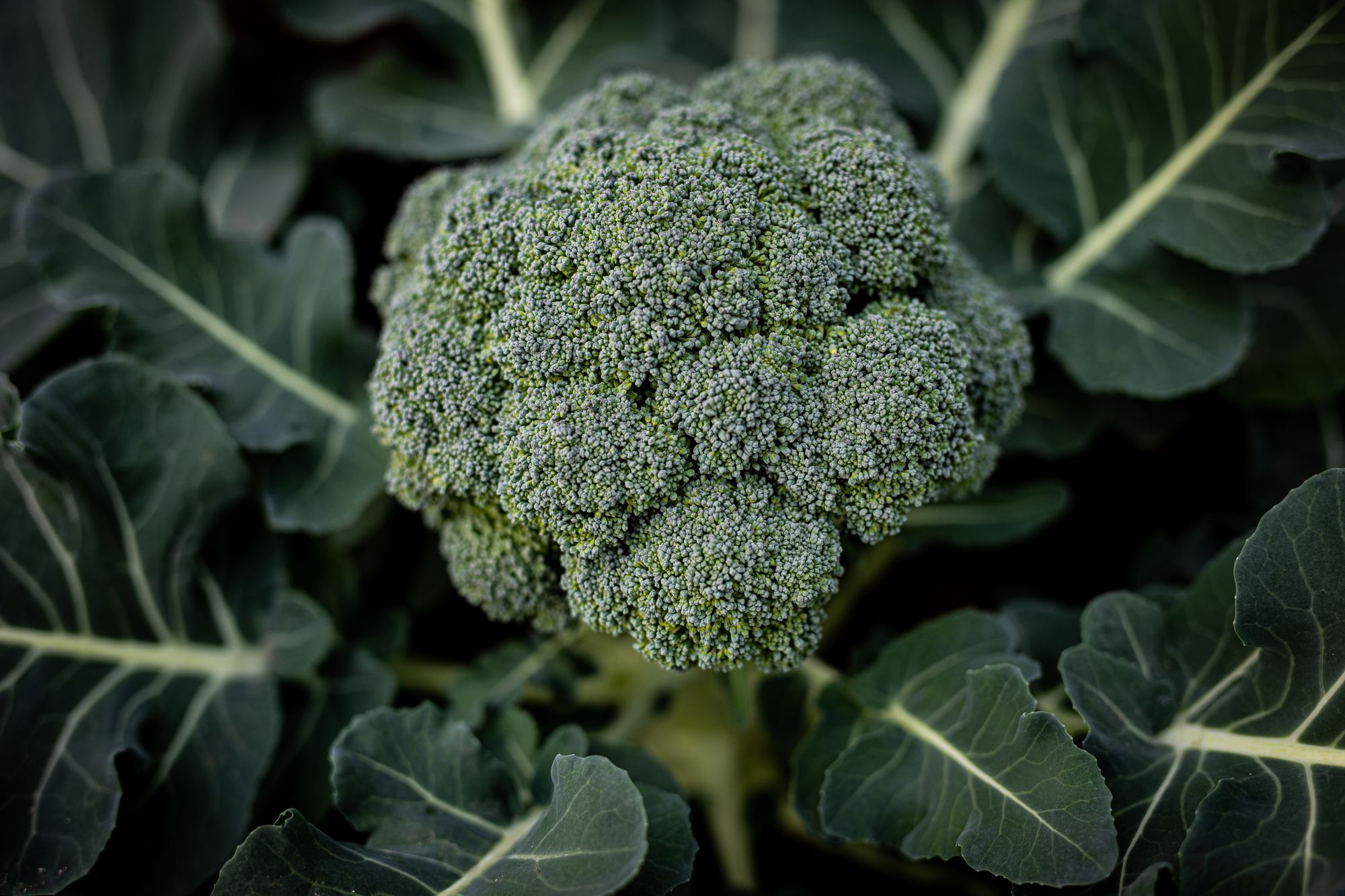
PER CUP: 19.4 calories, 0.6 g fat (0 g saturated fat), 6.2 mg sodium, 3.4 g carbs (2.2 g fiber, 0.7 g sugar), 1 g protein
Broccoli, a formidable vegetable, offers a myriad of health benefits. One notable advantage stems from its abundant reserves of a potent plant compound called Sulforaphane. This remarkable compound serves as a staunch defender against inflammation, safeguards DNA integrity, and exhibits potential in impeding tumor growth. While it is essential to note that broccoli alone cannot single-handedly prevent or treat cancer, incorporating it into your daily diet can yield protective effects.
By embracing the regular consumption of broccoli, you harness its full potential to support your well-being. Its rich Sulforaphane content contributes to inflammation reduction, DNA protection, and potentially influences tumor growth. By integrating this versatile vegetable into your meals each day, you can tap into the vast health benefits it offers.
9) Olive Oil

PER TABLESPOON: 119 calories, 13.5g fat (0g saturated fat), 0.3mg sodium, 0 g carbs (0 g fiber, 0 g sugar), 0g protein
Feel free to bid farewell to your zero-calorie cooking sprays, as including olive oil in your daily list of nutritious foods can bring about tremendous health benefits. Olive oil not only adds flavorful and wholesome healthy fats to your dishes but also showcases promising potential in slowing cognitive decline, as indicated by recent research.
Furthermore, olive oil's positive impact extends to supporting brain health. A 2020 study published in the New England Journal of Medicine revealed that individuals at high cardiovascular risk who consumed a Mediterranean diet supplemented with olive oil experienced a lower incidence of cardiac events compared to those on a reduced-fat diet.
By incorporating olive oil into your daily culinary routine, you not only enhance the taste and texture of your meals but also contribute to promoting cognitive function and maintaining a healthy heart. Embrace the nourishing properties of olive oil as an essential addition to your everyday diet.
It's important to remember that you don't have to feel discouraged if you're unable to include all nine of these foods in your daily diet. Starting small and gradually incorporating these foods into your routine is a great approach. Begin by adding one new food each week and gradually increase your intake from there. Remember, the key to developing healthy nutrition habits lies in progress, not perfection. Every step you take towards a healthier diet is a step in the right direction.

